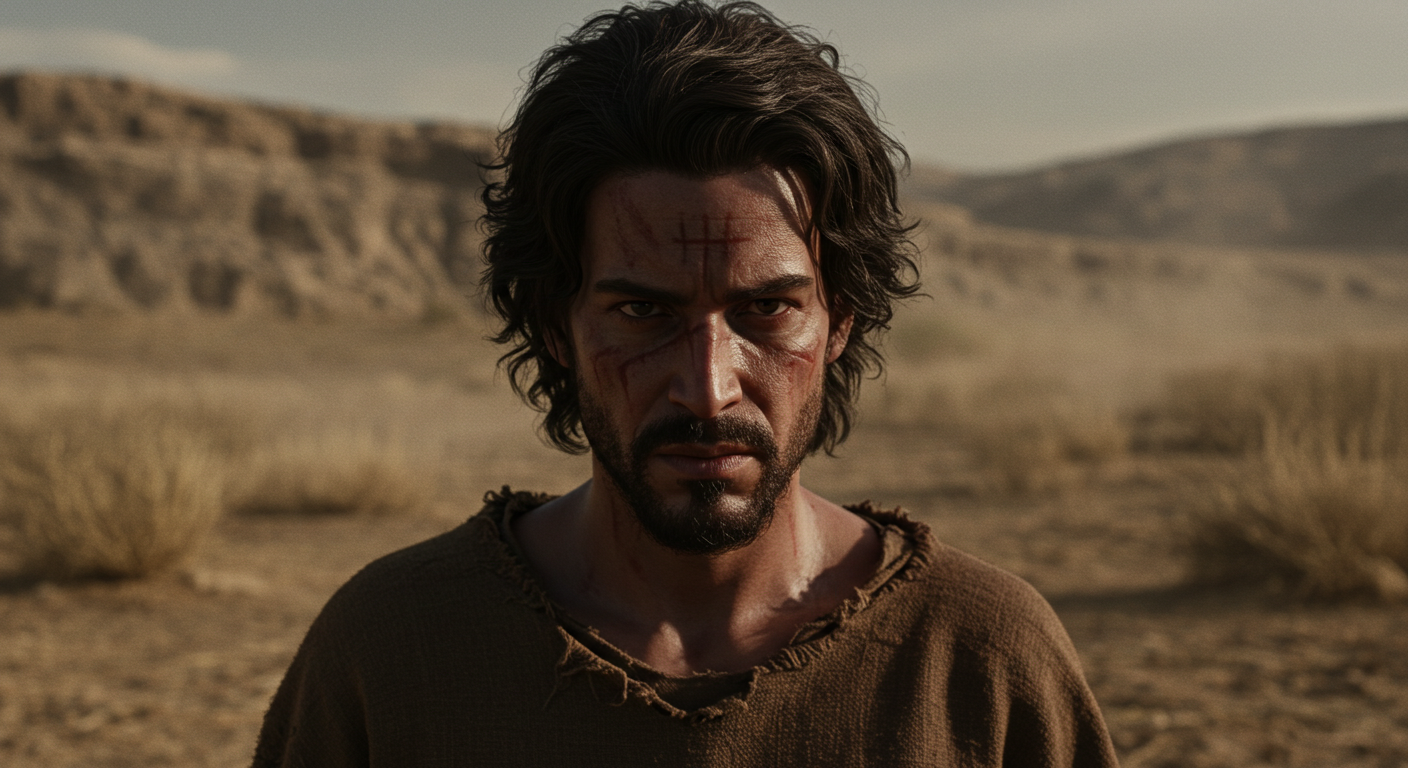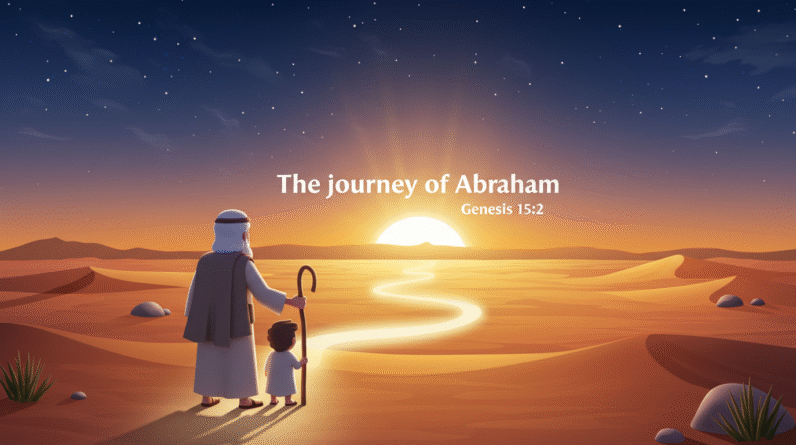Explore Cain’s poignant tale in Genesis 4:1-16, a story of envy, morality, and divine justice that mirrors today’s struggles with identity and ethical choices.
Cain: The First Murderer – Genesis 4:1-16
In the rich tapestry of biblical stories, few are as poignant or profound as the tale of Cain, a figure etched into history as humanity’s first murderer. His story is not just a testament to human frailty, but a reflection of the complex interplay between jealousy, divine favor, and moral choices. You might find that Cain’s narrative resonates with contemporary struggles of identity, acceptance, and morality, offering timeless truths that still echo today.

The Introduction of Cain
Cain, the firstborn son of Adam and Eve, stands as a pivotal character whose life is intricately woven into the early chapters of Genesis. As the first human to be born (as Adam and Eve were created), Cain’s existence marks the continuation of humanity’s story beyond the Edenic paradise. His narrative unfolds with simplicity and gravity in Genesis 4:1-16, a passage that holds profound lessons on the human condition, moral transgression, and divine justice.
Cain and Abel: The First Sibling Rivalry
The tale of Cain and Abel is one of the earliest recorded sibling rivalries. Cain, a farmer, and Abel, a shepherd, each bring offerings to God: Cain presents the fruits of the soil, while Abel brings the firstborn of his flock. The acceptance of Abel’s offering and the rejection of Cain’s set the stage for one of the most dramatic events in biblical history. This divine preference becomes the seed of burgeoning jealousy and anger within Cain, revealing the human tendency to struggle with feelings of inadequacy and envy.
In a society that often values success by comparing oneself to others, Cain’s story begins with a familiar theme. You might find yourself wondering why God favored Abel’s offering over Cain’s. Was it the offering’s nature, or perhaps the heart behind it? These questions invite you to reflect on the essence of true worship and the importance of an honest heart in our transactions with the divine.
The First Sin Outside of Eden
In the narrative of Adam and Eve, sin entered the world through disobedience. Yet, with Cain, sin takes on a new dimension—it is premeditated and culminates in violence. When God questions Cain about his anger, He warns him that sin is crouching at his door, eager to dominate him. However, Cain must overcome it (Genesis 4:7).
Here, you see the metaphorical battle between good and evil within the soul. Everyone encounters moments when emotions threaten to override better judgment. Cain’s failure to heed divine counsel serves as a reminder of the dangers inherent in allowing resentment to fester, morphing into actions that go against moral laws.
The Murder and its Aftermath
The culmination of Cain’s inner turmoil results in a tragic fratricide. In open defiance of God’s warning, Cain invites Abel to accompany him to a field where he kills his brother (Genesis 4:8). With this act, Cain cements his legacy as the first murderer, transforming sibling rivalry into sibling bloodshed.
The aftermath of Abel’s murder speaks volumes of divine justice and mercy. God confronts Cain with the famed question, “Where is your brother Abel?” (Genesis 4:9). Cain’s evasive response, “Am I my brother’s keeper?” reflects his guilt and irresponsibility. It’s a question that reverberates through time, challenging you to consider your responsibilities to others within your own community.
Driven by divine justice, God curses Cain, casting him from the earth and marking him for his protection (Genesis 4:10-12). Cain’s pleas reveal the complexity of divine-human interaction, showing both the severity of his punishment and God’s continued mercy even in judgment.
Lessons from Cain’s Life
The Hazard of Envy
Predictably, the story of Cain teaches the hazards of unchecked envy. His life provides a cautionary tale that envy, when left unaddressed, can overshadow rational thought and lead to catastrophic actions. For you, this story is a reminder to cultivate contentment and gratitude, appreciating your unique journey rather than constantly comparing it to others.
The Importance of Emotional Mastery
Cain’s failure to master his emotions offers another lesson. You are invited to reflect on your reactions to rejection or disappointment. Mastery over your emotions, rather than suppression, allows a healthier path to processing feelings. Cain’s downfall suggests the necessity of confronting negative emotions before they manifest in negative actions.
Responsibility and Repentance
Cain’s evasive response to God’s inquiry about Abel underscores the importance of acknowledging responsibility and seeking repentance. You face moments where mistakes may lead to choices that hurt others. Cain’s narrative encourages admitting wrongdoing and embracing the path of repentance as a means of healing and reconciliation.
Connection to Today’s World
In today’s world, Cain’s story resonates deeply as individuals grapple with similar internal struggles. Whether it’s dealing with jealousy in the workplace or managing familial tensions, the lessons here are universal. The story emphasizes the importance of addressing emotional health proactively, reminding you that avoiding conflict or ignoring personal responsibility only leads to more significant issues down the line.
In a societal context, Cain’s narrative calls you to reflect upon your role within your community. Are you truly being your “brother’s keeper”? With social dynamics continually evolving, the moral directive to look out for one another remains paramount. As you navigate an ever-changing world, the principles contained within Cain’s story continue to offer valuable insights into relational and emotional intelligence.
Key Bible Verse
One key verse encapsulates Cain’s journey and its broader implications: “Then the Lord said to Cain, ‘Why are you angry? Why is your face downcast? If you do what is right, will you not be accepted?'” (Genesis 4:6-7). This verse invites introspection, challenging you to reflect on righteousness and the inherent choices you face in your path toward personal growth and moral development.
Thought-Provoking Question
Cain’s story raises a poignant question: How do you respond when faced with feelings of jealousy or rejection? Are you inclined to allow these emotions to govern your actions, or do you seek a higher path of understanding and growth? Cain’s narrative, with all its complexity, challenges you to examine your responses and encourages you to aspire toward emotional wisdom.
Historical/Cultural Context
The world of Cain and Abel is one far removed from modern conveniences, rooted in agrarian practices and familial bonds as the core social unit. The pastoral lifestyle of Abel and the agricultural focus of Cain highlight the diverse ways of subsistence and worship in early humanity. This context is crucial for understanding their offerings and the subsequent divine preference that triggers the events unfolding in their story.
Comparison with Other Characters
Comparatively, King David also experienced feelings of inadequacy and jealousy, particularly with Saul. Yet, David’s story diverges, as he seeks divine guidance and chooses non-violence, the opposite of Cain’s actions. By examining David’s path, you can see the broader spectrum of how biblical figures respond differently to similar emotions and challenges.
Prayer
Lord, guide us in our times of envy and frustration. Help us seek understanding over violence, and reconciliation over rejection. May we learn from Cain’s story to master our own emotions and live in harmony with one another. Amen.







